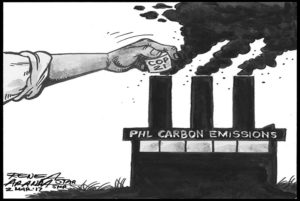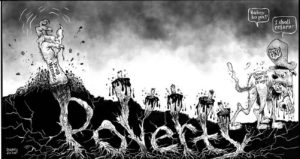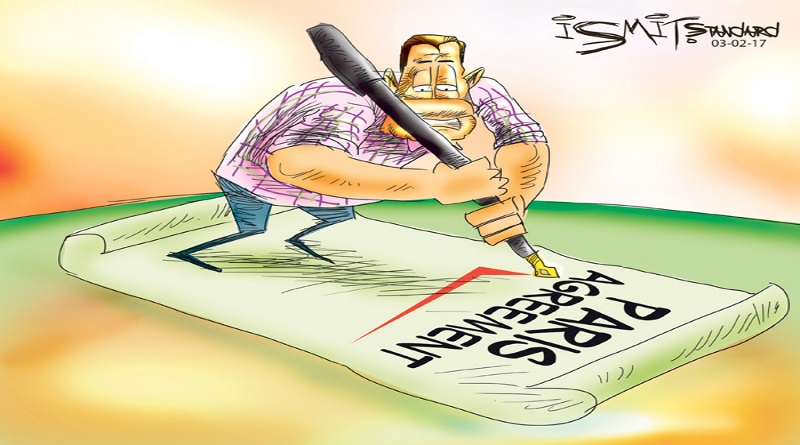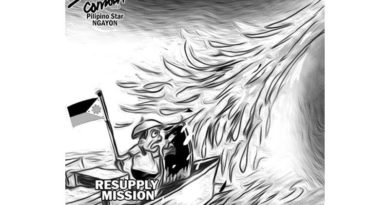Finally, Mr. President
We have said many things against President Rodrigo Duterte, and we have disagreed with and disapproved of his words and actions countless times.
But we commend him today for finally moving for the ratification of the Paris Agreement—a pact among nations of the world to bring down their levels of greenhouse gas emissions to prevent warming the globe at more than 1.5 degrees Celsius above pre-industrial levels.
Projections tell us that an increase of 2 degrees or higher will have catastrophic effects on weather patterns, leading to more frequent, erratic and devastating storms.
Just after his election, Mr. Duterte said he would reject the Agreement because it is the developed countries that have caused climate change with centuries of industrial activity. Other countries like the Philippines should not be prevented from producing energy from the most cost-effective sources, specifically coal.
He also cursed the United Nations and branded it a hypocrite—the annual global gathering on climate change is called the United Nations Framework Convention on Climate Change.
Over the next few months, however, numerous groups tried to get through the President and get him to appreciate why acting in concert with the rest of the world was important. They highlighted that the Paris Agreement operated on the principle of common but differentiated responsibilities, and that the global nature of the problem called for the widest possible cooperation of all countries.
Finally, it is not just about emissions reduction but a commitment to enhance adaptation and climate resilience, especially since the effects of climate change are already upon us and are being felt by vulnerable groups in the most vulnerable countries, the Philippines included.
Succeeding steps showed the President was not impervious on the matter. In January, he convened the Climate Change Commission which he chairs by virtue of his presidency—something his immediate predecessor never did, not once throughout his term.
And then on Wednesday, he signed the instrument of accession and transmitted it to the Senate, which has the ultimate task of concurring to and ratifying the treaty.
That climate change is a global menace and that something must be done to stem its effects are no longer the question. At this point, the issue is whether what must be done is being done soon enough, and adequately enough.
As the Philippines grapples with the dilemma of responding to its energy requirements the most inexpensive way on one hand, and scaling down its dependence on coal and increasing its use of renewable energy on another, we are reminded that there are no clear-cut solutions to problems as big and as far-reaching as global warming.
There are, however, decisions to be made if we must do something tangible and measurable to protect the next generations.
With the Duterte administration taking this step, the next important act to watch is whether we would actually make good on these commitments by shifting, gradually but decisively and consistently, to cleaner energy sources.
NOTE : All publications and photographs have been taken from the Internet.














